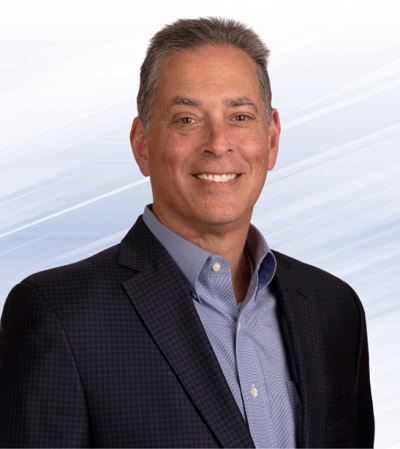The Financial Planning Process with Mark Singer
You’ve been thinking about and preparing for retirement, but will you have a happy one? Mark Singer shares his perspective and data into what makes for a happy and unhappy retirement!
Listen to us On
About the Episode
LifeBlood: We talked about the financial planning process, specifically getting ready for and having a happy retirement, what the steps are, how to think about them and when to get started with Mark Singer, CFP, author, speaker and Founder of the Retirement Journey.
Listen to learn why being busy is the enemy of good planning and preparation!
For the Difference Making Tip, scan ahead to 17:58!
You can learn more about Mark at RetireNowQuiz.com, 55Retire.com, Facebook, Twitter, Instagram, YouTube and LinkedIn.
Thanks, as always for listening! If you got some value and enjoyed the show, please leave us a review wherever you listen and subscribe as well.
You can learn more about us at MoneyAlignmentAcademy.com, Twitter, LinkedIn, Instagram, Pinterest, YouTube and Facebook or you’d like to be a guest on the show, contact George at Contact@GeorgeGrombacher.com.

George Grombacher
Lifeblood Host

Mark Singer
Guest
Episode Transcript
george grombacher 0:00
Come on. strong, powerful Mark singer has returned to lifeblood Welcome back, Mark.
Mark Singer 0:17
Good morning. It’s great to be back.
george grombacher 0:20
Excellent to have you back on mark is a CFP. He is an author, a speaker, he is the founder of the retirement journey. Mark, tell us a little about your personal life, some more about your work and why you do what you do.
Mark Singer 0:34
You know, I love I’ve been a coach and educator all my life, whether it was coaching up my daughter in soccer, or basketball. You know, I used to as a kid, I taught tennis, and I love doing that I love bringing value and having an impact on other people and in this business in financial planning. And this is what I say to my clients, I want to work with people, where I can make a significant impact on their ability to pursue their lives, find find comfort in the journey. And that that’s really what I do. And I love that. I know it’s been a while since we spoke, you know, I’ve gone from one grandchild to now three, wow. Which is really fun. Except over the past couple of months. They all live with me. So that wasn’t quite as fun. But they add by By the way, they left this past Saturday, and I gotta be honest with you, me and my end, Johnnie Walker, double black really had a nice party when they finally left. But it was great, great to get with the grandkids and glad the millennials are out of the house. But I think you know, overall, it’s a busy life. We talk with busy people, we want to help them to better understand what their choices are. So they can make intelligent decisions, so they can enjoy the journey.
george grombacher 2:12
Nice. I appreciate all that gratulations on tripling the number of grandkids.
Mark Singer 2:18
It just means it means two more 529 plans.
george grombacher 2:22
Yeah, okay. All right. Life is a series of trade offs, for sure. Yeah. Excellent. You know, we, we are just busier and busier and busier. And I don’t know if that’s good or bad. But it’s kind of the reality of things. And when does when when typically does the sort of retirement realization? when when when does that start sinking in? Like oh, my goodness, this is actually getting close. And now it’s time for me to really get serious?
Mark Singer 2:54
We know it’s a great question. I think our industry has done a pretty lousy job of helping people prepare, both financially and with the proper mindset for retirement. And let me tell you what I mean by that. You know, the great answer would be, you know, when you get your first job, and you’ve got your first world 1k. And you know, you’re thinking about you know, yourself 40 years from now, when you start to maximize your contributions to the 401k. We know that doesn’t happen, right? That would be the great answer. The reality is it. I guess it all depends on how you organize and prepare your own life, if you are just putting out the day to day fires, and having that sort of control your life. And you’re always, you know, just going from day to day, week to week, month to month and not able to see any further than that. Your realization may come on Friday, when you’re when you’re when you’re going to be retiring on Monday. The The reality is that we call it the retirement redzone. You know, from a financial and emotional perspective, at least five years in advance of retirement from an emotional perspective, because you have to really separate out the two. The finances, you certainly have to have enough money. AARP did a study a couple years ago that showed the majority of people who are reaching their normal retirement age, call it whatever you will 6566 67 were deferring their retirement and the number one reason was they didn’t have enough money. So, again, we’ve done a lousy job from an industry perspective is telling you how why it’s so important to start early and saving and the impact of compound But if you do have enough money, or you think you’re approaching having that number, that magical retirement number, then from an emotional perspective, you need to really be thinking about constructing what retirement will look like at least three to five years out.
george grombacher 5:18
Got it? I appreciate that. So this is probably the the trillion dollar question for folks who are, who are, for lack of a better term, just getting kind of carried along by the stream. And like, Oh, yeah, that’s, that’s right. I’m supposed to be thinking about retirement, I’m supposed to be supposed to be contributing. But they’re not really being proactive. And so they’re going to end up in that position that AARP was just talking or that you were talking about, they don’t have enough money. Is there a way that you found to sort of shake people for lack of a better term awake?
Mark Singer 5:56
Well, I mean, that that sort of assumes, sort of from the financial and industry perspective, that money is the driving factor behind happiness, right. And I’m not so sure I buy into that there was a recent study, I’m trying to think of who did it was EBRI Employee Benefits Research Institute just came out recently. And they took a look at and they bracketed five different groups of people with the they call it from the struggling at the very low end to the affluent. Now, the interesting part about that was their definition of what affluent was, and affluent was having approximately $300,000 in assets, and $100,000 in income. So that was their top of the top of their top. They had affluent they had doing well, they had comfortable something else and then struggling. And the question they were trying to answer was, how happy or how satisfied, you are, now that you are retired, because that’s what we’re looking for, right. And of the four out of the five categories, that will will set struggling aside for a moment. The top four, basically eight out of 10 said that they were satisfied with that their retirement was basically in alignment with what their expectations were, and they were okay. So, you know, when we see some of these ads, and we hear some of the industry jargon, and you know, you need 1,000,002 or 2,000,003, to retire, I don’t know that we all need to buy into that. Now the struggling category where their satisfaction or happiness level was much lower than the other four. And this is really, really where I think we have to address these folks who are on a day to day basis, they were not as satisfied. And the number one reason was, and these are people who are making less than $40,000 in retirement and have I think less than $100,000 in total in total assets. The reason why they were not satisfied or happy was because they had a lot of debt. So if there’s one thing I think that we need to attend to, is helping people to address the debt that they have, whether it’s the credit card debt, where you’re paying 1215 18%, non tax deductible, and it’s crushing you on a month to month basis, or it’s the student loan debt where they say nationally, it’s approaching $30,000 per person. But I think it’s much more than that I have experienced in my household that it’s much more than that. We need to address the debt situation and the way that we spend money and the way that we behave with regards to finances. That’s what I would talk about with those people you’re addressing.
george grombacher 9:09
Nice like that. There’s a lot of wisdom there. I appreciate you sharing that, that study and that report that that that that makes a lot of sense. So we talked about how the folks that are satisfied. It’s because what they are experiencing is aligned with what they expected. So how do you think about from those folks who are two to five years away that they’ve been mindful about this? How do you talk about expectations?
Mark Singer 9:40
Well, again, we, again, I think our industry has done a lousy job because but total focus is on money. the more money you have, the more toys you buy, the happier you are. We know that’s not true. Okay. But part of your ability to pursue quote unquote happiness is having the freedom to do what you want to do when you want to do it. And there in lies the need to have that magical retirement number, whatever your number is that you need to have, in order to generate the income that you need. And I think the first thing you have to do is understanding what your cashflow need is, while you’re working, what we call the accumulation years, you know, your whole focus is on growing that money that retirement nest egg, but when you go to retire, we call it the distribution stage. money management isn’t quite as important as it was when you were working. Because now you either hit your number or what you have whatever number you have. Now you have to manage it in such such a way that you can go about and lead your daily life and pursue your bucket list items. So you really have to do and we’ve got the seven step process we work through with our clients. And as I say the number one thing is cash flow, and then the rest falls from that. But even more important than that, if you have a spouse or a partner, you really need to be having conversations about how you want to lead your life because the great divorce is rising. When I look at every other age level, divorce is shrinking. And the what’s happening is you’re finding, you know, and I, I talked about the pandemic in this way, the pandemic was a glimpse into what retirement might be for many, you couldn’t go to work, you were home with your spouse, 24. Seven, for some that worked out very well, for others not so much. And that’s what retirement is going to be. You have to define what your roles are, what your vision is what you think you’re going to do. If like an AARP, you don’t have enough money, then what is your part time work going to look like? You know, it did one of was one of you a primary earner during your working years? And how is that going to change? As you move forward, as as we’ve all said, who are married, I married you for better for worse, but not necessarily for lunch every day. We really have to define our roles and approach it like a business and understand that the finances are important. But as we saw in that EBRI study, you don’t need to have millions of dollars to be happy. That is not what drives happiness. it you know, now that I have got the three grandkids, oh my goodness, the time that I’m going to be spending and have spent with them, the joy I get just from being with them and the ability for me to, you know, share with them my experience, teach them, educate them, coach them through life, it’s gonna be wonderful. So we there really has to be a broadening of the understanding of what really is going to provide that happiness and satisfaction. Yes, you absolutely positively need the money that you need to do in order to get to pursue what you need. But beyond that, you need to have good healthy conversations with your spouse or partner to define what the next chapter in life is going to look like.
george grombacher 13:20
Nice. What do you what, what is the value that you bring to your clients? What is the value of an advisor through this process?
Mark Singer 13:32
You know, we’re we’re all on a journey. And the way I put it is we help our clients take the mystery out of the decision making process and what I mean by that, and it’s encapsulated in a conversation I had a number of years ago with a client of mine, Bobby called me up and she said, Can I do the kitchen cabinets? And if you know me, I don’t do kitchen cabinets. Okay. But what she was asking was a series of questions all in one. First of all, if I spend the money today, how will it impact my life, not just today, but for my pursuit of my dreams and goals tomorrow, and you can insert kitchen cabinets and replace it with second home, big toy, big trip with the grandkids down to Disney going for three months on on a trip with your spouse, whatever the number is for her was just a, you know, seven or $8,000 expenditure but for others it may be 50 100 250. So the real question, the real mystery for her was what’s going to be the impact will I if I spend the money now? How will it impact me later? And if it’s okay that from a planning perspective, because we start with the planning, from a planning perspective, it’s okay. Then where should I get the income from? Is there a time tax efficient way, is there some way that I can get it at where it doesn’t, if I have to take $1,000 out of my IRA, you know, and I’m making some decent money, I may end up having to take $12,000 out in order to net the eight or if I would need 100,000, I may need to take out 130,000 in order to net the 100,000. So the planning is the structure the planning is the guide, the planning will answer the questions you have in terms of your future and whether or not you are or are not on track to pursue your goals. And if you’re not on track, then we just run what if scenarios to find out? What is it you need to do in order to make adjustments to either your thinking or the planning? So you can be? And that’s really what it is it? Certainly we do money management, but it’s the planning guides the money management now that you go into retirement?
george grombacher 15:57
Yeah, that certainly does make sense. I mean, just right there in the wonderful example, can I can I do the kitchen cabinets, there’s so many different, potentially great decisions, potentially bad decisions, because we have so many choices if we have in fact saved money in different places. And I think that people probably just don’t recognize all the different nuance that goes in when you start thinking about time horizon, and taxes and accessibility and liquidity and all that stuff.
Mark Singer 16:29
And, you know, it’s really important that we, that you, as a individual, don’t judge yourself against others. And what I’ve learned and now 33 years in this business, we don’t judge the book by its cover, oh, because you have X amount of zeros in your net worth, therefore you’re happy. You know, I’ve got clients who have 12 $15 million in total assets. And they’re, they’re very happy, and some of them are not, I’ve got clients who have $300,000. And they’re leading a different life, a different pursuit, and many of them are very happy. They’ve got their core values, they’ve got their grandkids, they’re volunteering, some of them travel a little, whatever it is, I think it’s really important. You have to get really good in being happy in your own skin, being happy with where you are with what you have, and making the most of it. And I think the good news is I think our industry is headed more and more in terms of this way, sort of a, if you will, a holistic approach to it versus just the money management. But you know, again, what you typically see on TV on the ads on the internet is, you know, money management outperforming needing millions of dollars. And I just think that’s the wrong messaging.
george grombacher 17:51
Well said, Well, Mark, people are ready for that difference making tip, what do you have for them?
Mark Singer 17:58
I think you just have to step back, you know, I teach financial awareness and financial literacy to numerous corporations. And where we start is really you said it right at the outset. We’re all very busy. We’re all juggling lots of things. But I think you have to step back and start to prioritize what you need to do today. And to give yourself the green light I do this with with my webinars and show a juggler saying it’s okay to have some of the balls just sitting and doing nothing. Don’t have to attend to everything all at once. And for you know the conversation we’re having in terms of you know, preparing for retirement if your listeners really want to find out whether or not they are prepared for retirement, they can go to our site you can go to www dot retire now quiz.com that’s retire now quiz calm, invest two minutes in yourself, fill out the 15 question quiz and I will immediately get you back. which of the three stages of retirement preparedness you’re in as well as the first chapter of my latest book don’t outlive your money in retirement and a couple of worksheets that will help you to gain some clarity with regards to how prepared you are for your own retirement.
george grombacher 19:27
Whether that is great stuff but definitely get to come on. Come on. Mark thank you so much for coming back on give us that site one more time.
Mark Singer 19:37
Sure www we all know that part dot retire now quiz.com
george grombacher 19:46
Excellent. Well, if you enjoyed this as much as I did show mark your appreciation and share today’s show with a friend who also appreciates good ideas go to retire now quiz, calm and determine and Invest two minutes in yourself, figure out what stage of retirement you’re in, get the first couple of pages out of Mark’s newest book and make sure that you are doing the things that you need to do or start doing the things that you need to do to be a happy retiree. Thanks. Good, Mark. George, thanks. And until next time, keep fighting the good fight. We’re all in this together.
More Episodes
Concentrated Stock Positions with Matt Benson
Concentrated Stock Positions with Matt Benson Concentrated stock positions can be great for building wealth. Matt Benson talks about the important planning considerations to keep in mind!About the EpisodeWe focused on concentrated stock options, the important planning...
Finding Your Trading Edge with Adrian Reid
Finding Your Trading Edge with Adrian Reid Finding a trading edge can help you shift from gambling in the market to investing. Adrian Reid talks about how to take a professional approach to trading! About the EpisodeWe focused on finding your trading edge, how to...
Proactive Planning with Helen Stephens
Proactive Planning with Helen Stephens Being good with money requires proactive planning. Helen Stephens talks about how to do it while tuning out the noise! About the EpisodeWe focused on what it means to proactive planning, how events catalyze decision making and...
Take Things Head-On with Abbe Large
Take Things Head-On with Abbe Large It's better to take things head-on, but that doesn't mean it's easy. Abbe Large talks about how to do it, and why it's wise to be mindful of your legacy! About the EpisodeWe focused on how to take things head-on instead of brushing...
Regret Minimization with Andy Baxley
Regret Minimization with Andy Baxley Would clarifying your financial purpose lead to regret minimization later in life? Andy Baxley makes the case for doing exactly that! About the EpisodeWe focused on creating your statement of financial purpose and regret...
The Common Denominator of Success
The Common Denominator of Successby Albert E.N. Gray “The common denominator of success --- the secret of success of every man who has everbeen successful --- lies in the fact that he formed the habit of doing things that failuresdon't like to do.” THE COMMON...
From Idea to Reality: Market Research Essentials for a Seamless Product or Service Launch
In the dynamic world of business, transforming a brilliant idea into a successful product or service requires more than just creativity and determination. A solid foundation of market research is crucial in navigating the complex landscape of consumer preferences,...
Rebuilding Finances: Practical Steps for Entrepreneurs in Addiction Recovery
The road to entrepreneurship is fraught with hurdles, and facing addiction is undoubtedly one of the most challenging. The struggle with addiction can wreak havoc on both your personal life and business finances. However, reclaiming financial stability is not an...
Join the show.
Interested in being on the show? Tell me a little bit more about you and what you’d like to talk about!









